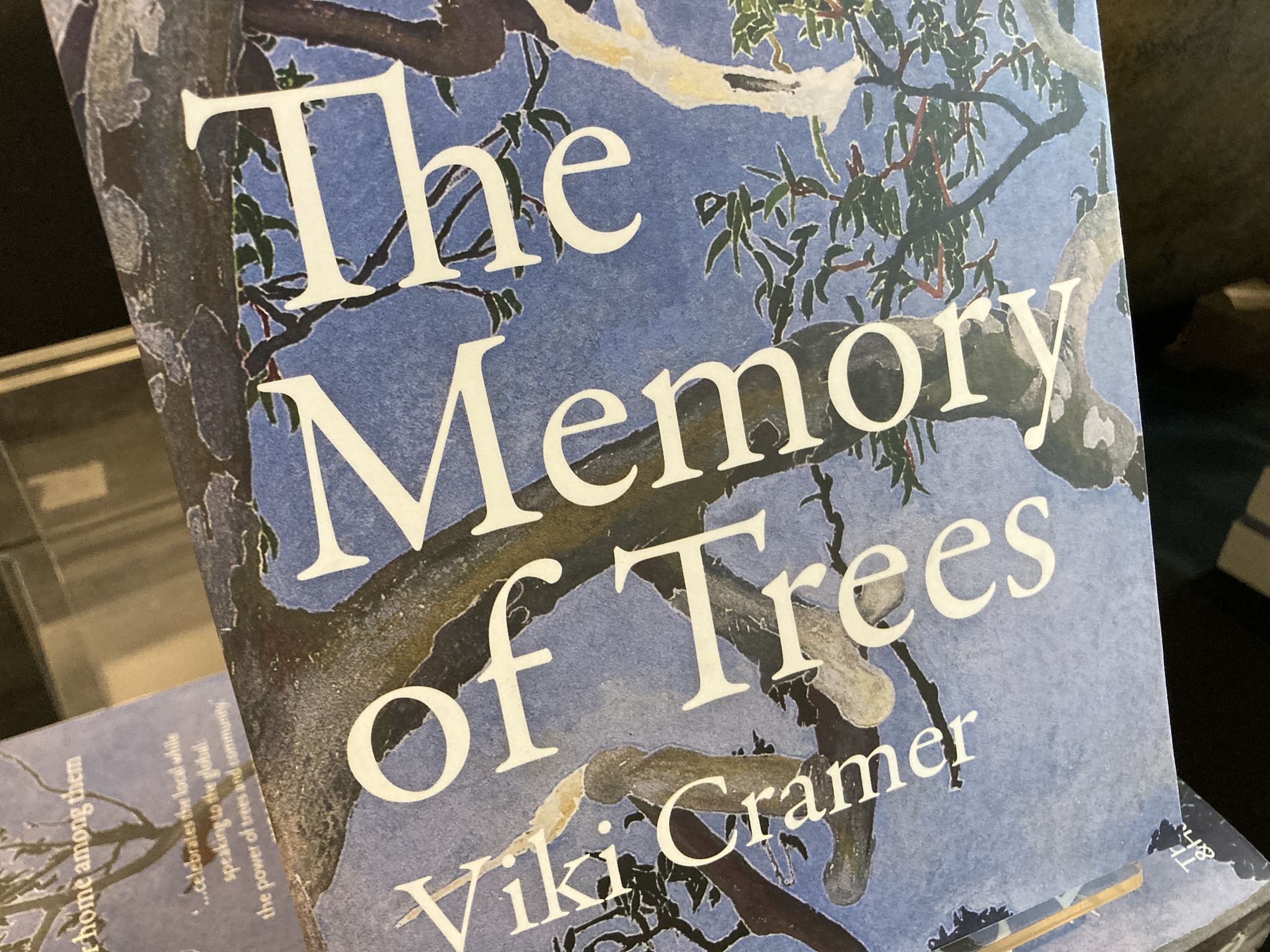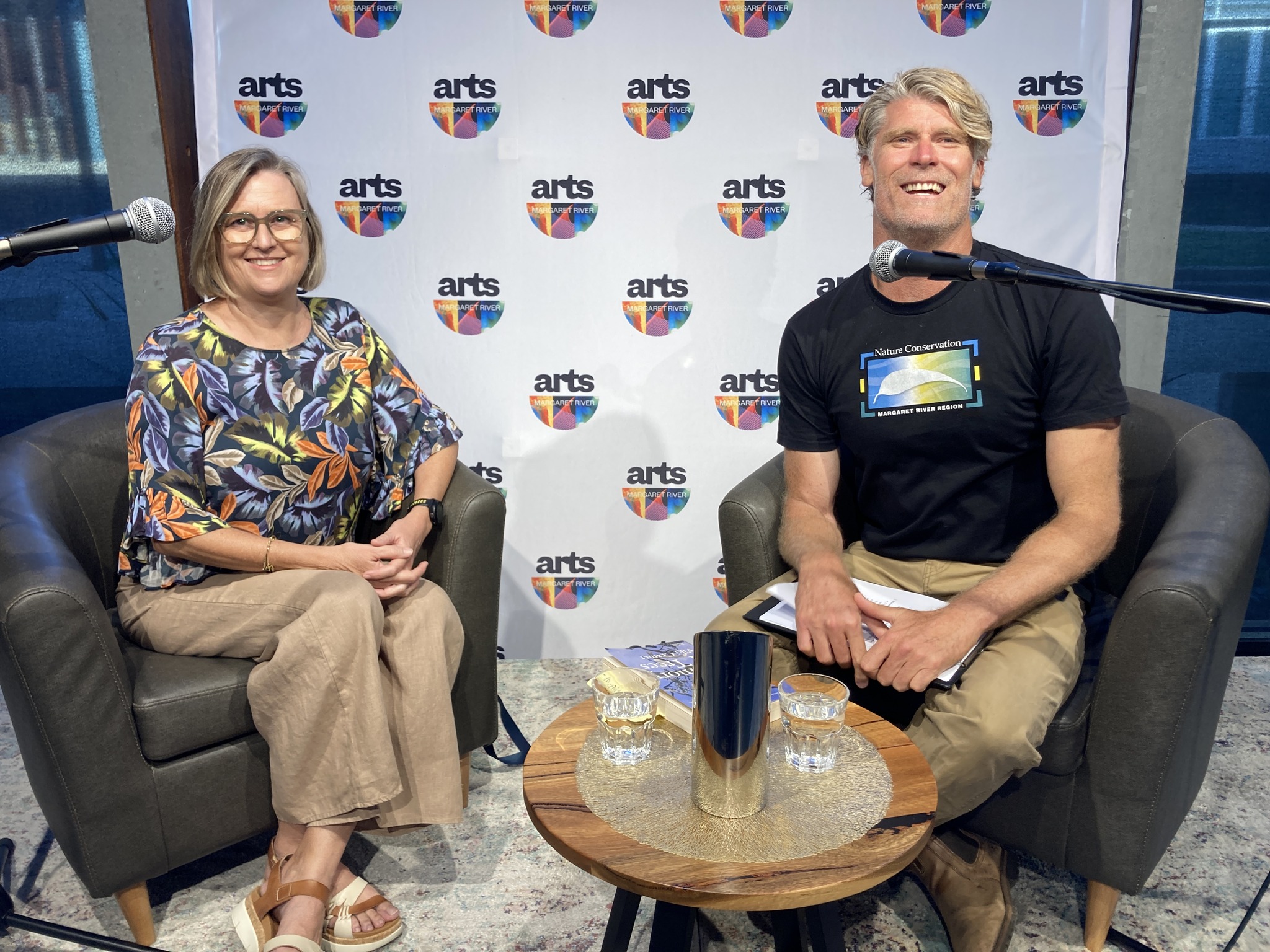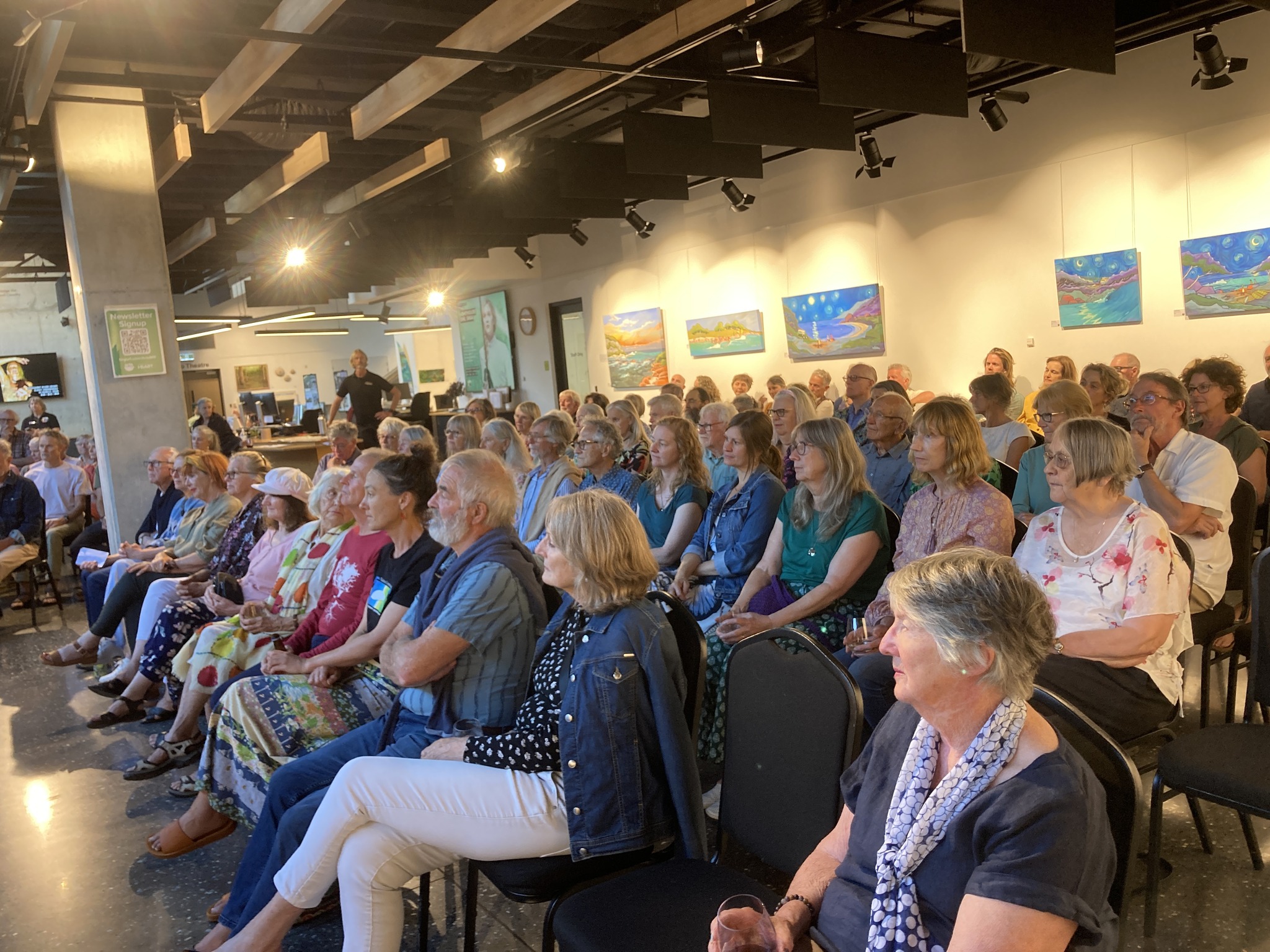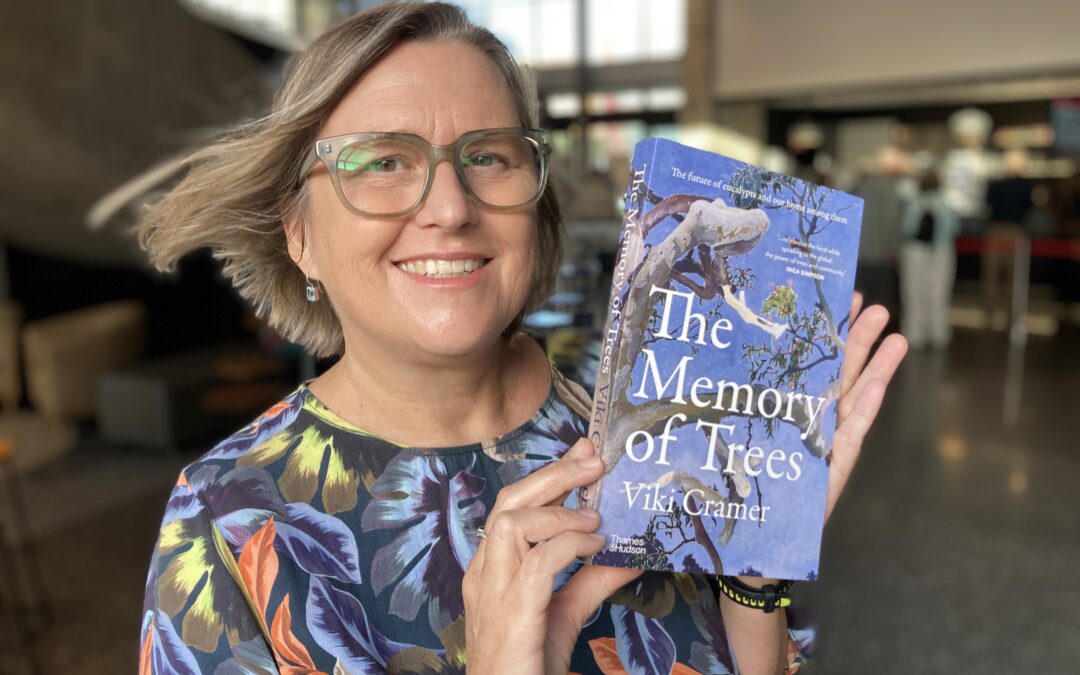A sell-out crowd joined celebrated author and scientist Viki Cramer in conversation with Nature Conservation Margaret River Region general manager Drew McKenzie to discuss Viki’s latest book, The Memory of Trees at the Margaret River HEART foyer last night.
Most Australians see their world through eucalypts: in city parks, by the coast and in the bush. Yet the resilience of eucalypt ecosystems is being tested by logging and land clearing, disease and drought, fire and climate change.
In The Memory of Trees, Viki Cramer travels through the jarrah, marri and karri forests of the hinterland to the wandoo, salmon gum and gimlet woodlands of the Wheatbelt and beyond, hearing the stories of scientists, forest advocates, land carers and Noongar and Ngadju Elders. She poses the questions: How important is the memory of these trees? What we remember of them? And what they remember of how to survive in a changing landscape?

Despite the decisions of the past and the ambivalent policy of the present, her book finds glimpses of hope for the future of eucalypts and the many ways that, together, we can ensure their future.
The Margaret River HEART was packed as people from across the region came to hear Viki speak about her book, and discuss the threats and hopes for our forests. The evening was a fundraising event for Nature Conservation Margaret River Region and the Margaret River Readers & Writers Festival, hosted by Arts Margaret River and the HEART.

Some key themes Vii touched on during the wide-ranging discussion included:
- Good science isn’t enough, government policy also has the follow and everyday people need to advocate and bring about the change they want to see
- Every one of us can make a big difference by learning about and knowing their environment, and working alongside First Nations people, scientists and conservation groups to protect your local patch
- Sometimes connecting to a place can give you “what you need rather than what you seek”, said Viki as she detailed one unexpected experience during the research and writing for her book
- There is a phenomenon dubbed “inter-generational environmental amnesia”, where the nature that each of us experienced when we grew up is what we take to be the baseline or the norm. The next generations don’t even know there’s been a loss because they have their own baseline based on their own experiences. “That’s why we have to keep the memory alive of what it once was,” says Viki.
- The northern jarrah forests were once extraordinary but are now virtually lost, and we have no memory of that
- Trees themselves have a genetic memory stored in their seeds, but change is happening so fast many species are struggling to adapt to the new climate
- Climate change is “getting real now, it’s here – things are on the edge now”, says Viki as she and Drew discussed causes and impacts of our drying climate
- We need to do everything we can to keep the vegetation in the landscape as healthy, intact and connected as possible, thereby giving the other flora and fauna that depends on it a chance to survive as well
- Grappling in the issue of fire and burning off is a complex one. But Viki said there was a need for more nuance, more care and more sophisticated discussions around fire management. “There is no one, easy answer and ecosystems are complex,” she says
- But there was an inspiring message of hope. “Not enough is getting done by all levels of government… but it’s extraordinary what people are doing to help their community and local environment,” says Viki
- Her message for each person in the audience was to “find what you can do and use your talents in whatever way you can” to help care for our environment

The evening concluded with an audience Q&A and book signings. Nature Conservation would like to extend a heartfelt thanks to Viki for travelling to Margaret River to tell her incredible story and share insights from her powerful book, The Memory of Trees.
Grab yourself a copy of this excellent book! And become a Nature Conservation volunteer to join the legion of locals who are coming together to be custodians for our environment and work towards a hopeful future.

